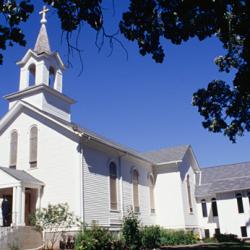Separation of church and state protects religious workers

Cheryl Perich was an ordained minister in Michigan. She was employed as a teacher for the Hosanna-Tabor Evangelical Lutheran Church and School in 2000. She taught secular classes and a religious class four days a week.
Cheryl was diagnosed with narcolepsy* in 2004 and took a leave of absence. When she tried to return to work, she was told she couldn’t because the school hired a substitute for that year. When she threatened to sue to get her job back, the church removed her from the ministry and fired her. Cheryl filed a lawsuit claiming violation of the Americans with Disabilities Act.
Through several lower federal court actions, Cheryl at first lost based on the church’s “ministerial exception” defense. This doctrine says that the First Amendment’s guarantee of freedom of religion protects churches from the reach of such protective laws when the issue involves religious employees of the institution.
Then the Sixth Court of Appeals disagreed stating that the ministerial exception did not apply to Cheryl’s case because her primary function was teaching secular subjects. A final decision was handed down by the U. S. Supreme Court in January, 2012. The Court reversed the Sixth Court saying their reasoning was wrong.
Justice Roberts, writing for the majority, said the lower court put too much emphasis on Cheryl’s secular duties ignoring the fact that she was an ordained minister.
What this means is that religious workers are at the mercy of the religious institutions who employ them. The Supreme Court held for the first time that churches, not courts, are the best judges of whether clergy and other religious employees should be hired or fired. This sheds some light on government anti-discrimination laws in the religious workplace. This is the first time the Court acknowledged the existence of the ministerial exception to anti-discrimination laws.
This is similar in theory to the Court’s refusal to micro-manage public schools. For example, school districts are charged with the responsibility of maintaining a dress code for students if they choose to. It is not a matter for federal judges to rule upon unless blatant discrimination exists.
*Narcolepsy is a chronic sleep disorder characterized by overwhelming daytime drowsiness and sudden attacks of sleep. People with narcolepsy often find it difficult to stay awake for long periods of time.



